Serendip is an independent site partnering with faculty at multiple colleges and universities around the world. Happy exploring!
Week Eight (Tues, 3/15): "The Sphere of Generosity"

James Lee Byars, The Sphere of Generosity:
"a mystical multiple in the form of a 2-1/2 inch handmade ball of fired clay"
"La vraie générosité envers l’avenir
consiste tout donner au présent"--Camus
I. welcome back! (any relevant stories-->"evolutionary experiences" or "evolutionary thinking" happening while you were out....?)
II. papers were due y'day evening; check the current list of Web Projects to make sure that yours is where it needs to be (if not, go back/tag it "Evolution and Literature Web Paper 2")
III. we're already midway through Richard Power's 2009 novel, Generosity; finish it for next Tuesday's discussion (there will be spoilers!)
IV. Paul on what's been happening in the world and on the forum since we were last together??
V. So, today we move into the second 1/2 of the course, focusing on "evolution of stories"; since "thinking evolutionarily" involves recognizing historical change, I want to begin by telling you a little bit about this history of this course, and how it, itself, has been evolving over the past 10 years
alexandrakg: my classmates, and even professors, are very motivated to discover more. I actually really like that it seems like Professor Grobstein and Professor Dalke seem to be really exploring these concepts with us and learning a little themselves.
Spring 2004: Herman Melville's 1851 Moby-Dick; or, The Whale and Sena Naslund's 1999 Ahab's Wife; or, The Star-Gazer
Spring 2005: Michel Foucault's 1980 edition of Herculine Barbin: Being the Recently Discovered Memoirs of a Nineteenth-Century French Hermaphrodite, and Jeffrey Eugenides's 2002 novel Middlesex
Spring 2007: E.M. Forster's 1910 Howard's End and Zadie Smith's 2005 On Beauty
Spring 2009: Walt Whitman's 2007 collection of poems, Leaves of Grass and Siri Hustvedt's 2008 novel, The Sorrows of an American
Spring 2011: Albert Camus's The Plague and Richard Powers' Generosity
What patterns have emerged from this emerging collection of texts?
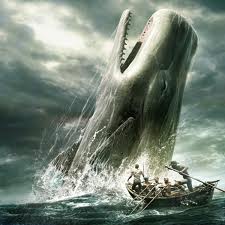 |
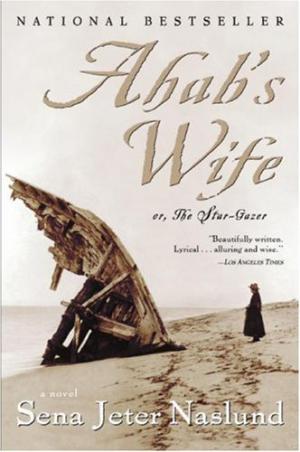 |
On the first pass-through, "evolution of stories" was the story of a novel written explicitly to fill in the gaps of an earlier one. Moby-Dick mentions Ahab's wife twice: the ship owner calls her "a sweet, resigned girl" in Chapter 16, and in Chapter 132, just before he dies, Captain Ahab laments that he is "away, whole oceans away, from that young girl-wife I wedded past fifty, and sailed ... the next day, leaving but one dent in my marriage pillow ...I widowed that poor girl when I married her...
In her 1999 novel, Sena Naslund spends 100's of pages imagining a life for this young wife, and that imagining begins w/ her revising (rejecting?) the relationship which identifies her. The novel's first line is "Captain Ahab was neither my first husband nor my last...."
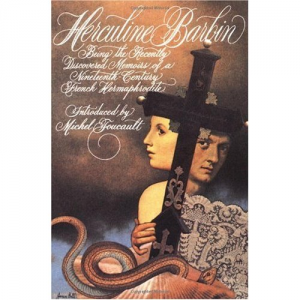 |
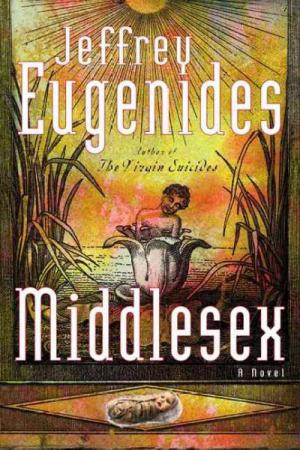 |
Our second pass-through was also built around a second novel that was a very explicit, conscious revision and expansion of an earlier text, filling in the gaps of what was not said the first time through. Eugenides said that "in contrast to the way hermaphrodites have appeared in literature -- miserable creatures like Tiresias for instance -- I wanted to write about a real person with a real condition.... as an expression of what it is like to be a hermaphrodite, from the inside, Herculine Barbin's memoir is quite disappointing. She just tends to go into this moaning, talking about how misfortunate she is and ... it's sad.... she didn't have enough self-awareness to be able to understand what was going on. In a way she was pre-psychological in her knowledge of her self. And when I read that book I didn't get any information about someone with such a condition....
But this time through we also added a third novel, Virginia Woolf's 1928 Orlando: A Biography, to complicate the sense of the evolution of stories as taking a singular, linear path. It took us two tries of "evolutionary thinking" to built into the course a recognition that no novel has a single ancestor; Eugenides said that "In a way...the book is not about a hermaphrodite at all.... it's about reinventing your identity on different levels, be that Greek to American, female to male....Reinvention of self is an enduring theme in American literature in general...this...has obviously Classical antecedents...and those are the things that inspired me: metamorphosis and changing...."
On our third try we continued to complexify our increasing sense of the multiple ancesters and descendents of all texts. Smith did explicitly revise Foster's novel: she described it as an "homage" to the earlier book-- "My largest structural debt should be obvious to any E.M. Forster fan; suffice it to say he gave me a classy old frame, which I covered with new material as best I could" --and she turned it thereby into a biting satire of American university culture. But we also brought in a text of literary and political analysis, Elaine Scarry's 1999 essay collection, On Beauty and Being Just, which was both the source of Smith's title and many of the ideas in the novel. And we watched our first film, James Ivory's 1991 movie version of Howard's End. We began to talk not just about the variation of narrative, of content, of plot line, but also about the relation among different genres, and explicitly about the emergence of different literary forms: why are we drawn now to more visual texts? And how does this richer sensory imput differently direct our range of responses?

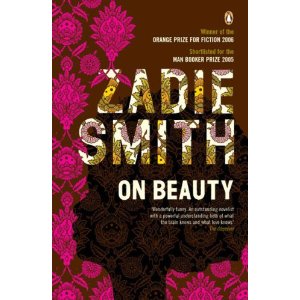
 |
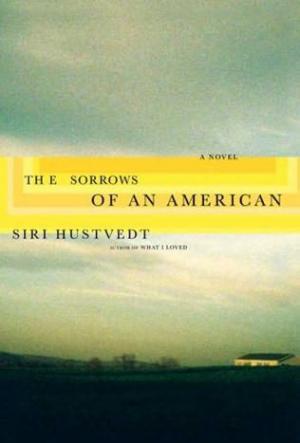 |
It was on our fourth try, though, that the real "speciation" occurred: a break-through into a new form, or idea. I finally realized that we should not be looking @ contemporary authors who say, explicitly, that they are re-writing earlier texts. That way of selection now seemed to me, retrospectively (how I had evolved!), very timid, not very imaginative, and (actually) not very evolutionary. It didn't allow for complexity, or for unpredictability, or for random generation, or even for the "blooming, buzzing confusion" out of which new texts arise and are shaped. It was too conscious, too deliberative...It was too safe.
That year's selections were not (Hustvedt, for starters, never named Whitman as her literary grandfather...). This was a much riskier experiment, with many more variables. We started it off with some philosophical texts--Susan Sontag's "Against Interpretation" and Paul Feyerabent's "Against Method"--to problematize disciplinary attachments to fixed methods of interpretation. The project became a very different one, arguing that the shared study of evolution and literature is productive, because it serves to highlight the underlying processes of diversity generation.
So, that's the story (well, one of the stories!) lying behind this one.
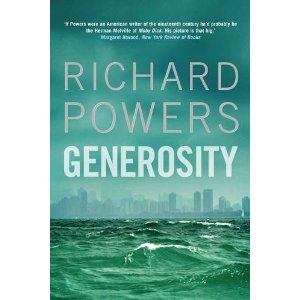 |
 |
VI. That's the history. Now on to the present (and future).
We are conducting our fifth experiment in this laboratory.
(Tom Kurton, on p. 46 of Generosity, "released the
children into the laboratories of their own lives.")
What's going to happen in the lab this time 'round?
What will we learn?
Let's begin with some of your initial reactions to Powers' novel.
- How'd you like it?
- What'd you notice about it?
- What dimensions of the text do you hope we'll discuss?
- What thoughts did you have about why we we might be reading it here-and-now?
- What might its "use-value" be for us, in our current context?
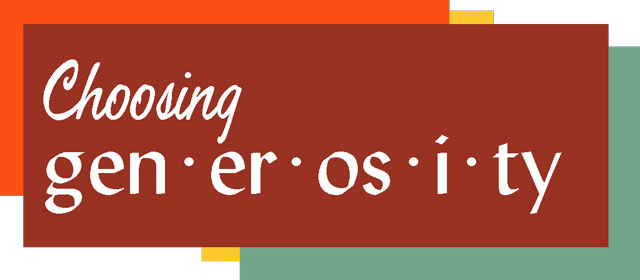
Dennett said, “All the achievements of human culture—language, art, religion, ethics, science itself—are themselves articles (of artifacts of artifacts…) of the same fundamental process that developed the bacteria, the mammals, and Homo sapiens…. No meme is an island ….’mere’ artifacts of the same processes that mindlessly produced the rest of the biosphere" (p. 144).
"The books that actually come to exist in the world’s libraries are deeply dependent not just on their authors’ biological inheritance, but on the books that have come before them. This dependence is conditioned by coincidences or accidents at every turning. Just look at my bibliography to discover the main lines of genealogy to this book… if… but if… and if… even if… unlikely to have composed just the string of symbols you are now reading" (pp. 142-3).
Let's follow him in "thinking evolutionarily" about Powers' novel:
- Where did this story come from?
- How might we tell the story of its origin and evolution?
- Who are its literary ancestors?
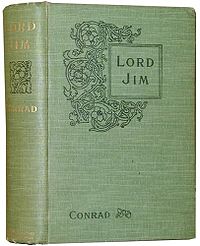
"So you know this story: Lord Jim, or a plot to that effect. Not that Stone collapsed all at once. I see him shriveling gradually" (p. 16).
What is that story? Do you know it??
- Do you know this story? Did you know it before you read it? Does it have a familiar shape?
Does Powers emphasize its familiarity or its novelty?
"He knows this story. You know this story" (p. 93).
"You know this story. Everyone knows this story but her" (p. 118).
"You know the story in Boston. You know what the lab will have to discover" (p. 160).
As you go on reading, watch for particular literary (or other!) predecessors...
In Literary Theory: A Very Short Introduction, Jonathan Culler asks us to note "above all the complexity and diversity of literature... the possibility of fictionally exceeding what has previously been thought and written.... Literature is a paradoxical institution because to create literature is to write according to existing formulas.... but it is also to flout those conventions, to go beyond them...an institution that lives by exposing and criticizing its own limits.... Literature...is 'cultural capital'.... But literature cannot be reduced to this conservative social function... literature is the noise of culture as well as its information. It is an entropic force... (pp. 40-41).
What are the "existing formulas" that Powers uses?
In what ways does he "flout conventions"?
What "cultural capital" does this novel represent?
What is "noisy" or "entropic" about it?
Some other sources suggested by Peter Kramer @ Slate, Sept. 28, 2009: - "The novel is social satire in the form of literary science fiction, a genre that harks back to Walker Percy and whose ancestors include Swift and Voltaire. We are ... on a fictive Earth whose technology is a half-step ahead of our own. As Powers puts it, 'This Chicago is Chicago's in vitro daughter, genetically modified for more flexibility.'"
- "The research that forms the basis for Powers' fiction concerns the underpinnings of emotional resilience. In 2003, Avshalom Caspi and others reported findings about a gene on Chromosome 17 that affects the way the brain handles serotonin. Children with favorable versions of the gene (two copies of the long allele) seemed immune to stress. Adverse events, extending to deaths in the family and even child abuse, did not affect these subjects' rates of depression later in life.... When it came, the debunking was dramatic. In June of this year, scientists reviewing numerous studies for the Journal of the American Medical Association found no evidence that the serotonin gene offers stress protection or, indeed, any protection from depression... the news reports that the model of inborn imperviousness to adversity was dead."
- "In the realm of social commentary, the role of fiction is to inform through means that are richer than straightforward argumentation. It's a problem for Generosity that in the field of enhancement, the medical ethics literature is so strong that it reads like accomplished science fantasy....thought experiments that frame precise critical questions: What are our objections to resilience brought about in this way with those side effects in that sort of society?"
- What position does this novel take in our "library of Babel" debate? Does it "believe" (or suggest) in the generation of new stories?
"In my country, a new work of fiction is published every thirty minutes.... most of those million-and-growing volumes are saddled with a romance.... Sexual selection... has molded us into the fiction-needing readers we are today. Part of me would love to belong to a species free, now and then, to read about something other than its own imprisonment. The rest of me knows that the novel will always be a kind of Stockholm syndrome --love letters to the urge that has abducted us" (p. 102).
Does Generosity present itself as an old, recycled, revised or new story?
"....everything ever written derives from one of only twenty-four possible plots .... It's the old, elemental two, the only two that anyone will read: the future arrives to smack around the past, or the past reaches out to strangle the future. Hero goes on a journey; stranger comes to town.... Here in front of him... is one plot no one will ever bother writing down: A happy girl passes through the world's wretchedness and stays happy" (pp. 39-40).
"I'm caught like Buridan's ass, starving the death between allegory and realism, fact and fable, creative and nonfiction.... I can't quite make out what I'm to do.... I know the kind of... story I'd make... if I could: the kind that... breaks free... that invents itself.... The kind in which there's no choice but chance" (p. 129).
- Does the novel "believe in" (or advocate for the possibility) of revising our personal stories? Of individuals writing a new story about their lives?
"'Do you think it is possible for people to change their own story?'... that question was her drug... the untapped ability of any human temperament to recompose itself" (p. 92).
"They become an ancient couple, and all their previous incarnations... become just experiments each tried once, failed hypotheses that now, at worst, provide good punch lines" (p. 162).
We've been talking about what literary production looks like here... and the novel's "position/belief" on its role in the activity of "revising humanity's story."
What does the practice of science look like in this regard? (Is it recognizably the same activity Paul has been describing?)
"To look on a thing that had been true since the start of creation but never grasped until you made it so...no euphoria...could match it....Science fit the very folds of Tom Kurton's brain....the goal of scientific exuberance ...was to replicate itself. And so his life... has spun out endless living forms... each a turbulent attempt to lay bare the order in things, and all of them variations most wonderful" (p. 46).
"we should all be nothing but clouds of frozen dust. This is what science says. All lunch is free" (p. 55)
"What we want is a rich ecosystem.... Lots of ways of doing science" (p. 109).
"All research gambles against time....hunting the mastodon.... Hang back and lose the prey; rush too soon and get gored....fear of prematurity... skeptical curiosity...holding out for more data.... He's good at knowing just when the eternally insufficient data must go public. But increasingly, the market is taking once-public facts private.... colleagues... can no longer talk freely to one another.... Those who would keep growing must shed their legacy biases" (pp. 130-131).
"His reluctance may be just legacy human nature: as stakes rise, even the fearless take cover..... Darwin himself tinkered with his theory for almost two decades.... his fear may even been sociological--just a fear of real-world consequences...'All good science pauses'" (p. 132).
"science's latest survival adaptation--salesmanship" (p. 145).
"'This whole thing is bogus. Nothing as complicated as feeling can possibly reduce to genetics ... this isn't good science'" (p. 159).
What does evolution look like in this novel?
"the secret of survival is forgetting. If evolution favored conscience, everything with a backbone would have hanged itself from the ceiling fan eons ago, and invertebrates would once again be running the place" (p. 20).
"Enhancement. Why shouldn't we make ourselves better than we are now? We're incomplete. Why leave something as fabulous as life up to chance?" (p. 21)
"we've been remaking ourselves for ten thousand years....We simply can't know our upper limits. All we can do is keep exploring them.... We are collaborators in creation" (p. 25).
"the massive structural flaw in the way the brain processes delight. The machinery of gladness... is an evolutionary hangover.... Back on the savannah, stress kept us alive. Natural selection shaped us for productive discontent" (p. 43).
What is the relation, in this novel, between the
"two cultures" of science and the humanities?
DID SCIENCE (for example!) "WIN" IN THE
"DIALOGUE BETWEEN THE TWO CULTURES"?
"The novelist's argument... a story with no end or impediment is no story at all. Replace limits with unbounded appetite, and everything meaningful turns into nightmare."
[The scientist's response:] "genetic enhancement does force major reconsiderations, starting with the boundaries between justice and fate, the natural and the inevitable. 'But so did the capture of fire and the invention of agriculture'.... For most of human history, when existence was too short and bleak to mean anything, we needed stories to compensate. But now... it's time for art to lead us beyond noble stoicism" (pp. 149-151).
DID SCIENCE WIN AGAIN @ THE SHEDD AQUARIUM?
"She takes him down to the leafy sea dragons.... Taxonomy's late-night brainstorming, gone unhinged.... He stares into pure possibility, feeling how feeble imagination is, alongside evolution...'Okay, Science. Please explain'....
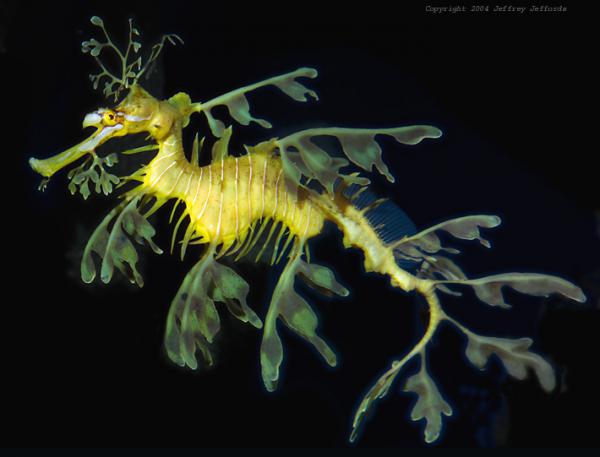
'Let chance make small errors copying the templates...' 'That's no explanation'.... He starts again, from the other end....Some slightly more seaweedy-looking sea horse has a slightly better chance....' 'Yes. Le camouflage. That's always the reason. Hiding, and also advertising. Can nature say only two things? But look at the cost to these poor creatures. They struggle just to swim!...what are they surviving better than?....Can fish be happy the way we are happy?'" (pp. 156-157).
"The world's two camps of readers, split by inborn temperament, need two inimical things, and each has long ago decided to love or loathe this man according to those needs" (pp. 246-247).
Are you rooting for or against biotech researcher Thomas Kurton and his projects?


